The Contemporary Hospitality Industry Sample Assignment
Introduction
The hospitality industry has become one of the most flourishing industries in today’s time, which also play a major role in contributing to the country’s economy. They include a wide field of service industries including lodging and accommodation., event planning and management, theme parks, transportation, hotel’s and such, all of which form an integral part of the travel and tourism industry. This study delves in examining the current structure, scope and size of the hospitality industry with special focus on the contemporary hospitality sector. Further, an exploration is made based on the current sand anticipated skill requirements relating to the hospitality sector. Emphasis is further laid on the range of operational roles that lie within the hospitality industry thereby identifying the required skills within. With focus on the Talent management team, the study further delves deeper into locating and developing the staff members and its eventual expansion and growth.
LO1 Examine the current structure, scope and size of the hospitality industry
Refer to the following posters.
P1 Different types of business within the hospitality industry and the diverse products and services they offer
The hospitality sector is composed of a wide variety of business niches, which intends to diversify the customer satisfaction to its optimum level and meet their leisure needs duly. The hospitality unit is composed of a vast chain of businesses within their various sectors such as restaurant, hotel and amusement parks, which constitute of several units including the maintenance of facility and direct operations (Songur, 2018, June). Taking the example of Hilton London, focus is laid on its increasing availabilities of leisure time, disposable income and a complete satisfaction to the customers. They are further divided into four major segments of the hospitality industry, which include the food and beverages, the travel and tourism sector, lodging and recreation.
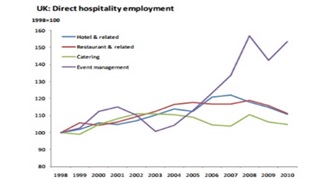
Figure 1: UK hospitality sector growth
(Source: Prud’homme and Raymond, 2016)
Food and beverage industry: the food and beverage sector is known as the F&B department, which also forms the largest segment within the hospitality industry. This industry is estimated to deliver 50% of all meals that are eaten within the US. They mostly comprise of establishments, which are engaged to preparing snacks meals and other beverages thereby emphasising on an immediate consumption. The restaurant forms an integral part of the hotels and the services that are rendered by them seek to widen the guest experiences and obtain the best quality of foods and customer service.
Travel and tourism: This business sector specialises on providing services that are related to mobbing people from one place to another using certain medium such as buses, cabs, planes, trains and such. They form an integral part of the travel industry. The leisure travel allows the tourists to spend money for lodging, food and other recreational services and carry out a successful vacation trip. The business travel on the other hand allows people to make travels based on their work and use the lodging services for accommodation and food. There also leis other people who make travels for recreation while making a business travel. The major role that the tourism industry plays is to encourage the tourist to make travels for meeting their respective purposes, obtain sufficient services, and support in turn.
Lodging: They involve the accommodation sector, which allows the tourists to rest for one or more nights in the various resorts and hotels (Jones et al. 2016). These units further divide themselves into certain group of hotels such as fancy hotels, youth hostels, elder hostels, motels and such. They allow the tourist to rest and stay in the lodges for as long as they require.
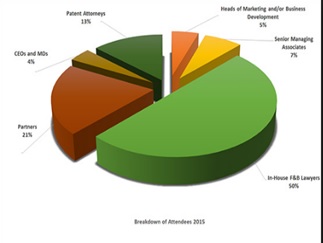
The lodging businesses markets to other market segments greatly attract the business travellers, leisure travellers, the long stay travels and other special travellers, all of who lie within the diversify customer type.
Recreation: This department focuses on the activities that are carried out by people with special focus on the customer rest, relaxation and enjoyment. The main goal behind this business unit is to freshen the customer’s body and mind thereby emphasizing on other additional refreshments.
The entertainment business solely focuses on improving the attraction level thereby allowing the tourist to visit other areas of special interest such as the zoos and museums, spectator sports and other participatory sports, all of which intend to diversify the recreation business further.
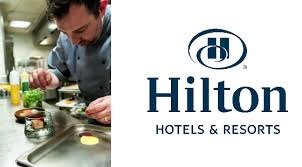
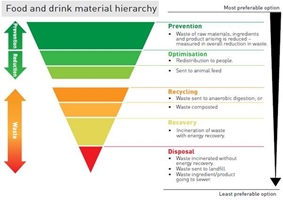
P2 Examine a range of operational and functional departments within a chosen hospitality business
The hotel industry runs smoothly by making the right use of resources and people within the respective departments. This follows emphasising on the important operational and functional departments that lie within thereby seeking for the basic amenities as provided by Hilton.
The major operational departments of the company include:
- Executives: They are responsible to carry out with important decision makings within the business. They focus on each of the main departments of the mangers, directors and other executive heads. Based on the company’s operations and sizes, they are further responsible to focus on the important areas of work including accounting, marketing and front desk services.
- Front desk services: The front office staffs are solely responsible to deal with the guests and maintain a list of their contacts and bookings. This further follows emphasis on the detail-oriented people who are required for this job role thereby ensuring that they are able to meet all the customer needs duly. This further seeks to emphasize on the various divisions of a business thereby handling each department with care.
- Housekeeping: This department solely seeks to keep the guests room clean and tidy which is one of the crucial tasks. This team is solely responsible to deal with every minute detail of the rooms and the cleanliness of the sheets and toilet (Roper, 2017).
- Maintenance: with the sole motive of providing with the best quality utilities and electronics, the company intends to improve their malfunctions and issues. This has made it necessary for them to adapt to the tech-oriented world and find ways to repair and fix their computers and TV screens thereby emphasising on following a cutting edge tech.
The use of the best mode of technology further is of great help to the executives to improve the work quality of the organization (Gajjar and Okumus, 2018). This has in turn helped them, to keep up with the growing size of the business thereby making the personnel easily available to them.
- Accounting: By following an effective accounting process, the company has been able to maintain a track of the expenses and revenue thereby helping the business to growth. This further is followed by making necessary adjustments that would be helpful for the accounting team to use their relevant data and make forecasts base on it. This is further followed by providing a support to the other departments.
- Marketing and Sales: The marketing team of Hilton London solely lays focus on the promotion of the company thereby converting certain important prospects into paying guests. This further seeks to spread the brand message thereby staying up to date with the latest marketing channels and practices. They further take into account the help of social media, content marketing, OTA and such to diversify their services.
By emphasising on an effective marketing process, the team is further responsible to collaborate with the front desk services. It is the role of the executives to control their targeted audience and deliver them with the exact messages. This would help them to improve the operations of their marketing department. The entrepreneurs are further responsible to support in the business development thereby acting as one of the most crucial part of the company’s progress.
The full service hotel requires offering a suitable room service thereby taking orders that would be able to meet the guest requirements. This further follows emphasising on the increasing competency of the kitchen staffs followed by emphasis on a separate catering team for the conference rooms.
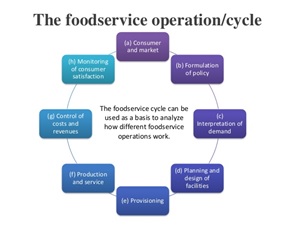
P3 Discuss the contribution of the hospitality industry to local, national and international economies
With Tourism having become one of the world’s largest industries growing at a fast rate, the economic sector has greatly been influenced by it. The tourism sector has become a significant source of foreign exchange revenue for various countries such as UK thereby allowing the growth of other developing countries situated alongside. This industry contributes significantly to the development of employment opportunities both directly and indirectly. They are further responsible to achieve the millennial development goals, which help in the creation of income and employment. This further helps to reduce the proportion of people living with less than a dollar per day.
The tourism employment within the North East Asian countries has been estimated to be about 86 million jobs out of the total employment. With job creation, they are further responsible to generate huge set of revenue from the industry thereby allowing the government to allocate the financial resources in such a way so as to improve their education and health conditions.
With the expansion of the hospitality sector globally, there has been diverse promotions within that has changed the multicultural environment friendly. This has in turn helped to strengthen the national regional and global standards (Jones et al. 2016). The internationally oriented hospitality industry further raises the competitive level, which has allowed the diversification of a great number of indicators. This has in turn helped to widen the economic growth as predicted by the International Monetary fund thereby allowing the equal distribution of income to the developing countries by about 6.4% and 2.2% for the advanced nations. The hospitality industry has further been able to wine their travel and tourism concept thereby attracting huge set of tourist both nationally and internationally.
The hospitality sector is solely responsible to develop a suitable employment structure thereby widening the job opportunities available for tour guides, planning and operators. This has further led to the growth of the tourism industry thereby emphasising on a suitable growth and progress of the country’s economy. They are further responsible to boost the local industries thereby developing an instance of agriculture and production of the food and retail sectors. This in turn helps to generate the income and wine the foreign exchange earnings thereby emphasizing on the growth of foreign currency within the country. This leads to development of a diversification and increase in the growth of a lucrative industry.
LO2 Explore current and anticipated skills requirements in the hospitality industry
Refer to the following factsheets below.
P4 Investigate a range of different operational roles within the hospitality industry
The hospitality industry is a broad category of fields within the service industry that focuses on the accommodation, event planning, theme parks and other additional facilities within the tourism industry. This industry has been able to become a multibillion-dollar industry with special focus on the availability of airline time and disposable income.
Hilton London has been able to diversify their operations with special focus on the growth of a facility management and direct operation thereby including various sections such as that of housekeeping, porters, kitchen workers, bartenders, management, marketing and human resources.
A concierge is responsible to interact with the customers directly thereby providing them with various types of services. They further act as liaisons that provide the guests with respective services for meeting the needs. They further are responsible to provide an extensive customer service skill that is able to meet the needs of the front of the house hospitality operations.
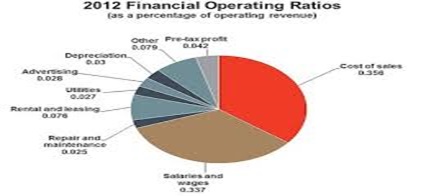
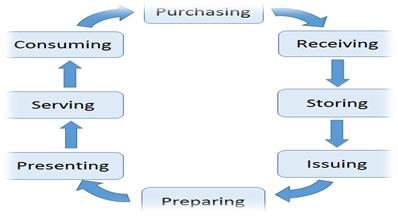
The event planner is further responsible to carry out with meetings and conferences followed by a convention planning. They are further responsible to focus on maintain an effective coordination within. The executive chef also plays an important managerial role, which involves a lot of work behind the scenes of the hospitality industry.
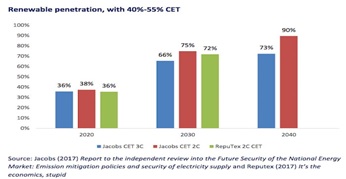
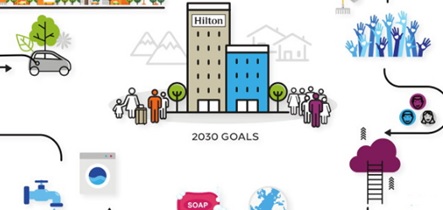
The executive chef further is responsible to foresee the productions of food within the hotel chains and restaurants thereby deciding on the venue and menus. They are typically responsible to carry out with an effective food planning and operation within the kitchen. The Rooms division constitutes of three major areas with focus on the front office, housekeeping and uniformed services, all under the surveillance of the human resource managers. These staffs are solely responsible to carry out with their respective departmental functions and roles thereby emphasizing on providing the customers with the best possible services.
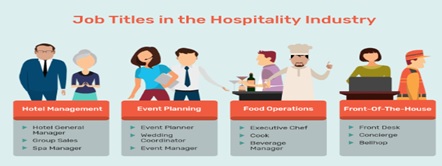
P5 Examine the skills required for roles within the hospitality industry and current skills shortages
The hospitality industry is a constant form of employment, which allows young talent to work with them thereby widening the job opportunities. This further focuses on several positions starting with the entry level to other demands including skills that would offer both prestige and excellent compensation.
Some of the key skills required within the business, which Hilton London has thoroughly, laid focus includes:
- High level of customer service: The hospitality sector solely requires working with customer facing environment where the guests are constantly expecting a good and efficient quality of service. This requires providing them with the best customer services and meeting all their needs with care (Hua et al. 2015). Customer feedback is a very crucial part of this industry where emphasis is laid on the customer needs and demands and what ways can be implemented to met their negative feedbacks and keep them satisfied at all times.
- An efficient communication skill: The hospitality sector requires focus on meeting both the physical and mental demands of the customers. This requires carrying out with an service communication with the customers and the staff followed by an effective management. This further requires understanding of the market environment and constant training to understand the oral and written communication to carry out with the operations duly.
- Formal training features: The hospitality industry relies mostly on the governmental regulations and laws, which require carrying out with an effective formal training to meet the qualifications duly. This further is followed by emphasis on following certain strict regulations so as to widen the employee standards and skills. The RSA have further taken due steps to meet the minimum legal requirements within the hospitality careers thereby emphasizing on the diversification of the skills within the industry.
- Increased level of cultural awareness: To follow up with the progression of the hospitality sector, focus is thoroughly laid on meeting the different requirements of the people. This follows emphasising on a sensitive understanding of the vari9ous cultures and religions of different nationalities. Emphasis is laid on incorporating the open minded nature within so as to embrace the people and make them feel more comfortable. This in turn is of great help to them to evaluate the customer satisfaction level thereby widening the progress of the hospitality sector further.
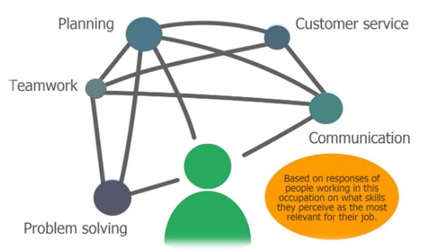
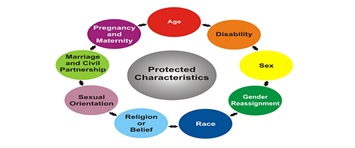

Conclusion
The study infers by emphasising on a thoroughly examination carried out based on the current structure, scope and size of the hospitality industry. This follows exploring of the current and anticipated skill requirements within the chosen organization of Hilton London thereby diversifying the concept of hospitality sector further.
Reference List
Gajjar, T. and Okumus, F., 2018. Diversity management: What are the leading hospitality and tourism companies reporting?. Journal of Hospitality Marketing & Management, pp.1-21.
Hua, N., Morosan, C. and DeFranco, A., 2015. The other side of technology adoption: examining the relationships between e-commerce expenses and hotel performance. International Journal of Hospitality Management, 45, pp.109-120.
Jones, P., Hillier, D. and Comfort, D., 2016. Sustainability in the hospitality industry: Some personal reflections on corporate challenges and research agendas. International Journal of Contemporary Hospitality Management, 28(1), pp.36-67.
Jones, P., Hillier, D. and Comfort, D., 2016. Sustainability in the hospitality industry. International Journal of Contemporary Hospitality Management, 28(1), pp.36-67.
Prud’homme, B. and Raymond, L., 2016. Implementation of sustainable development practices in the hospitality industry: A case study of five Canadian hotels. International Journal of Contemporary Hospitality Management, 28(3), pp.609-639.
Roper, A., 2017. Vertical Disintegration in the Corporate Hotel Industry: The End of Business as Usual. Routledge.
Songur, A., 2018, June. Reviewing CSR Promotional Communication Strategy in Hospitality Industry: Analyzing A Case Assignment. In Global Conference on Business and Economics (GLOBE 2018).


